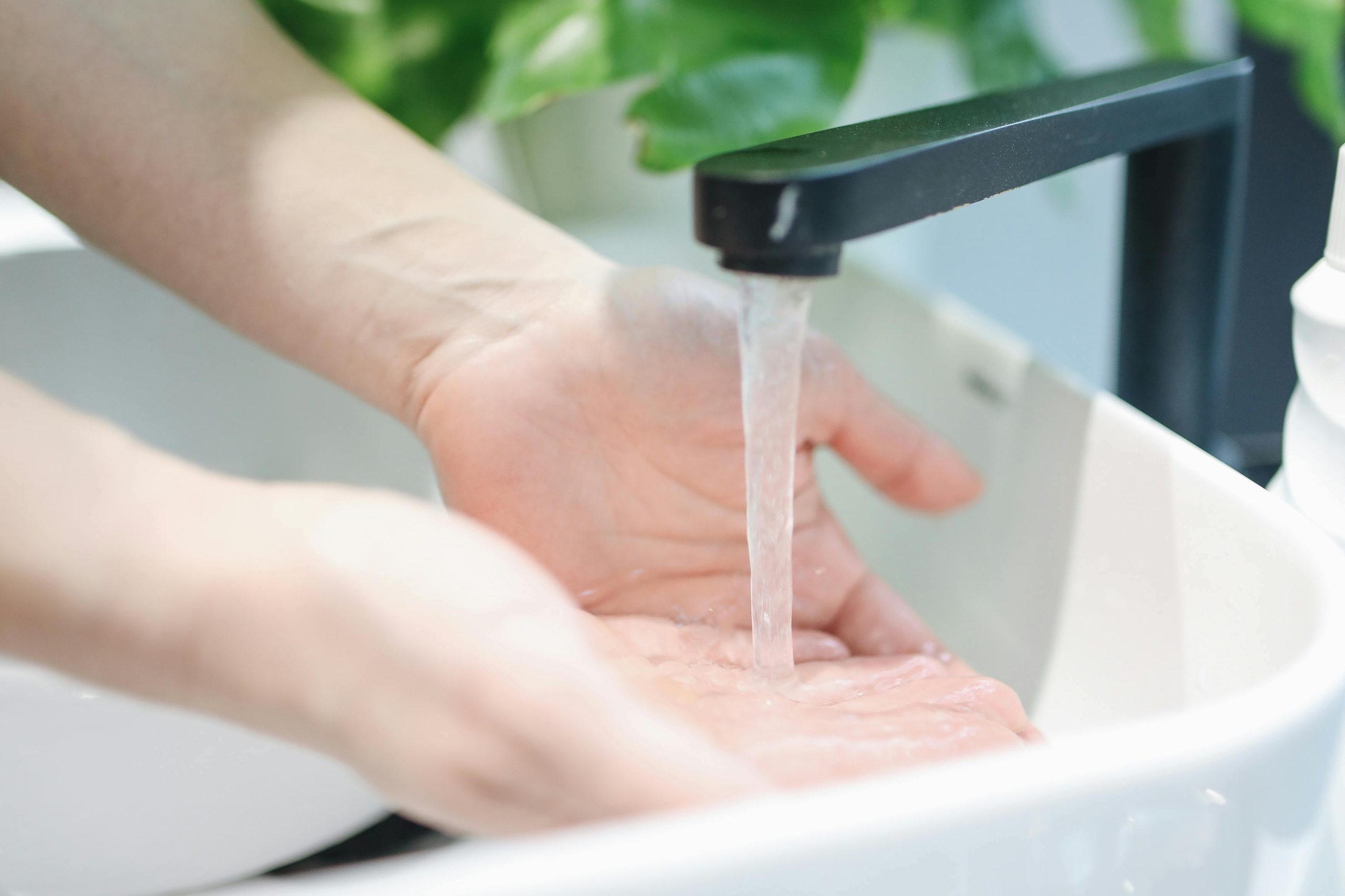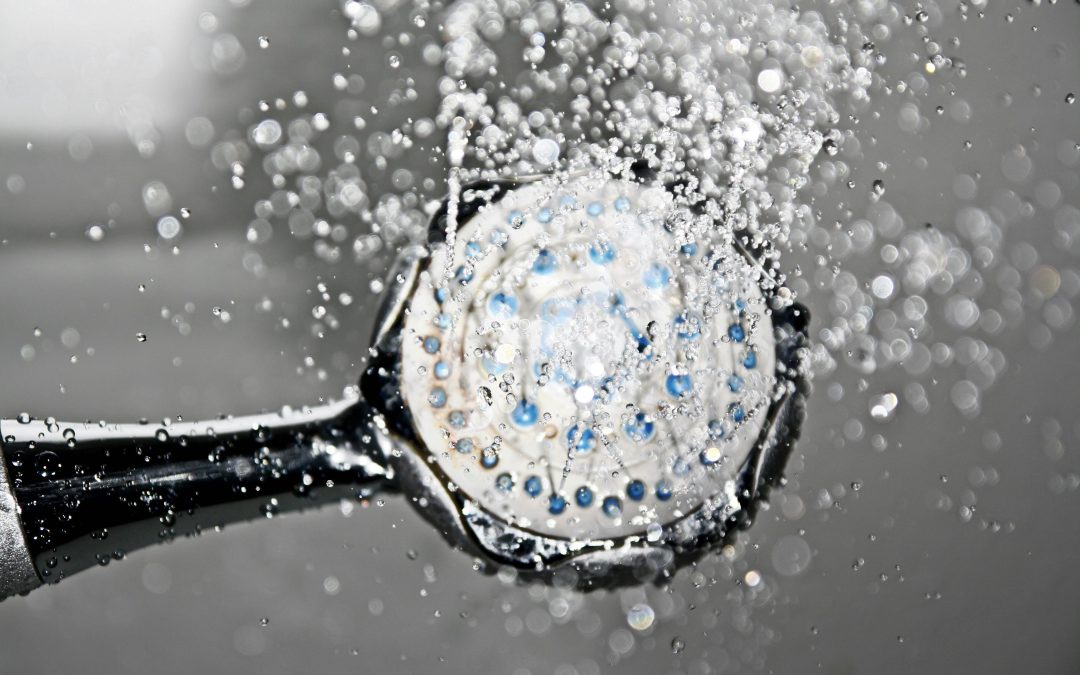
What Is Hard Water?
Hard water is water that contains elevated levels of dissolved minerals, particularly calcium and magnesium. These minerals are naturally picked up as groundwater moves through soil and rock, and they’re not harmful to your health. However, they can cause significant wear and tear on plumbing systems and household appliances.
Water hardness is measured in grains per gallon (gpg), and anything over 7 gpg is considered hard. In many Michigan communities, water hardness levels exceed that threshold—making this a widespread issue for local homeowners.
The Plumbing Problems Hard Water Causes
Over time, the minerals in hard water form a solid buildup known as scale. This scale can cling to the inside of pipes, fixtures, and water-using appliances. As scale accumulates, it narrows water flow, reducing water pressure and efficiency. In extreme cases, it can clog pipes entirely and require expensive repairs or replacements.
Common signs that hard water is affecting your plumbing include:
- Decreased water pressure
- White or yellow crust on showerheads or faucets
- Soap scum in tubs and sinks
- Frequent plumbing repairs due to buildup
- Inefficiency or early failure in appliances like dishwashers and washing machines
Beyond just your pipes, scale buildup in water heaters makes them work harder to heat water, increasing your energy bills and shortening the appliance’s lifespan.
Impact on Appliances and Daily Life
The effects of hard water extend beyond your plumbing infrastructure. Appliances that rely on water—like coffee makers, dishwashers, and washing machines—can suffer from reduced performance and lifespan due to scale buildup. Laundry may feel stiff or appear dingy, and dishes can come out of the dishwasher with spots or film.
Even daily routines like showering or washing your hands can feel less effective. Hard water makes it difficult for soap to lather properly, leaving a residue on your skin and hair. Over time, this can lead to dry skin and hair that’s harder to manage.
How to Test for Hard Water in Your Home
If you suspect hard water, there are several ways to confirm it. Many hardware stores sell affordable water testing kits that provide an estimate of your water’s hardness level. Alternatively, you can contact your local water utility for a water quality report or hire a plumbing professional to conduct a comprehensive water test.
Identifying hard water early allows you to take preventive action before significant damage occurs.
Solutions for Hard Water: Softeners and Alternatives
The most common and effective way to address hard water is by installing a water softener. These systems use a process called ion exchange to replace calcium and magnesium ions with sodium or potassium, preventing scale buildup and improving water quality throughout your home.
There are several types of water softeners to consider:
Salt-based ion exchange softeners: The traditional and most widely used systems.
Salt-free conditioners: These don’t remove minerals but prevent them from forming scale.
Dual-tank softeners: Ideal for larger households with high water usage.
If you’re unsure which system is best for your home, a licensed plumber can help you evaluate your needs and recommend the right solution.
In some cases, especially where water hardness is moderate, homeowners may opt for point-of-use systems that treat water only at specific locations, like kitchen faucets or showerheads. These don’t solve the root problem but can offer temporary relief in high-impact areas.
Ongoing Maintenance and Prevention
Once you’ve installed a softening system, ongoing maintenance is crucial. Salt-based softeners require regular salt refills and periodic inspections to ensure optimal performance. It’s also wise to schedule annual plumbing inspections to monitor for any hidden damage from previous hard water exposure.
Replacing aerators on faucets, cleaning showerheads, and flushing your water heater annually can also help mitigate long-term effects.
Don’t Let Hard Water Drain Your Wallet
Hard water is more than a cosmetic issue—it can quietly damage your plumbing, reduce the lifespan of your appliances, and increase utility bills if left untreated. The good news is that with early detection and professional intervention, the damage can be minimized or entirely prevented.
If you suspect hard water is affecting your home, Premier Plumbing, Inc. is ready to help. We offer expert water testing and customized water treatment solutions tailored to your household’s needs. From whole-home water softeners to ongoing maintenance and plumbing repairs, our team is committed to keeping your systems running efficiently and protecting your investment.
Contact Premier Plumbing today to schedule your water assessment and take the first step toward healthier, longer-lasting plumbing.

